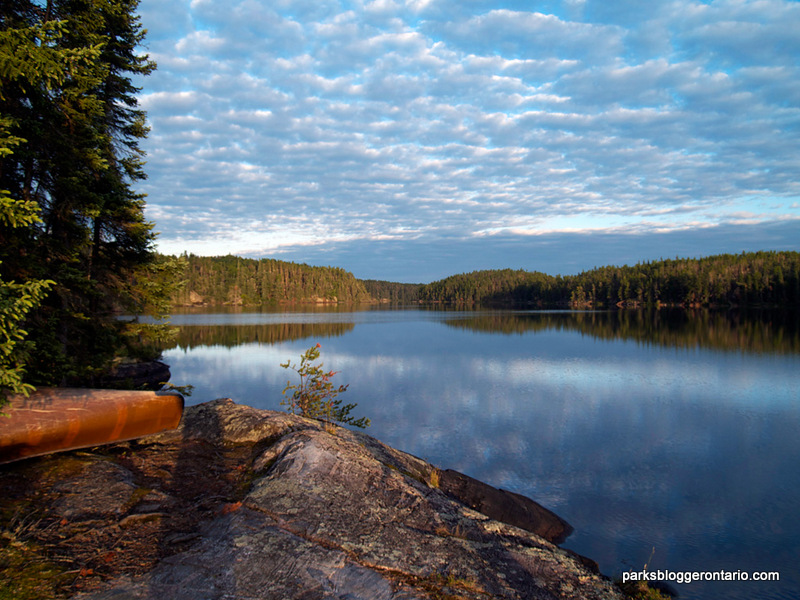
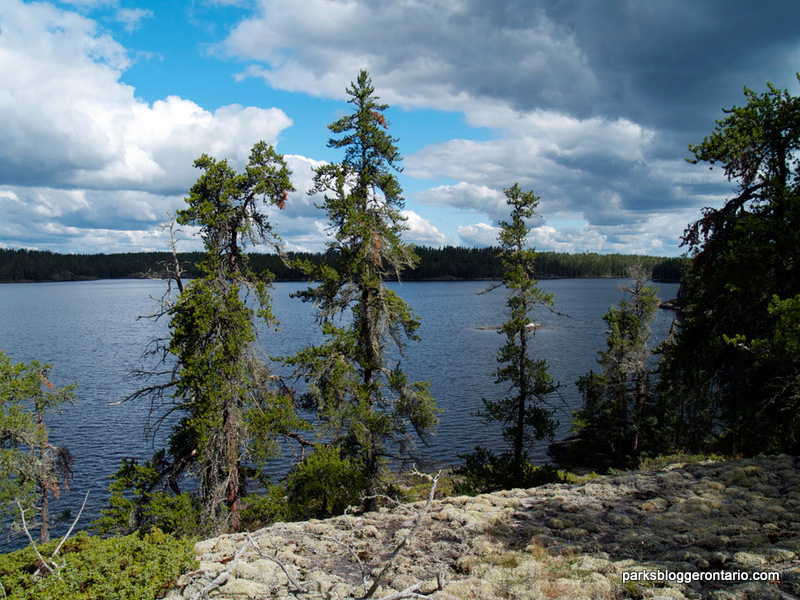
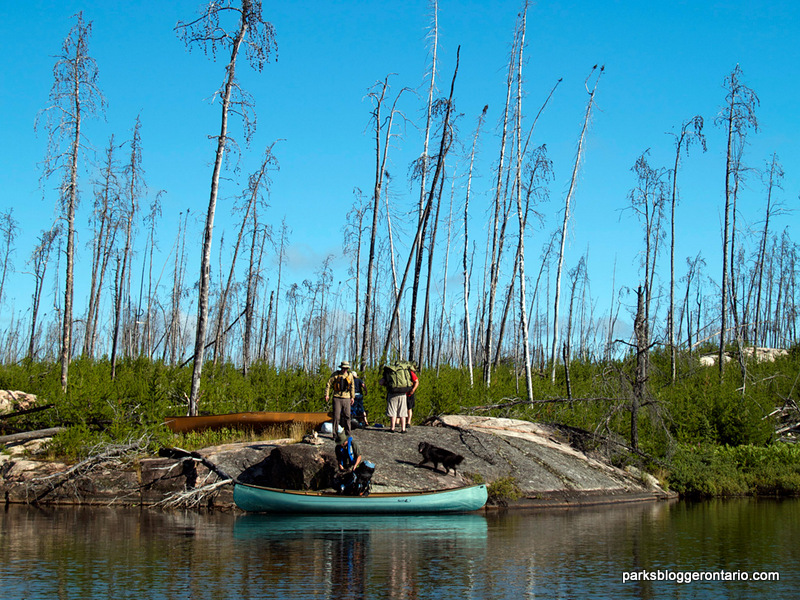
Finding campsites is another interesting challenge when camping in a wilderness park setting. Because of the lack of soil in the region, there isn’t any obvious well-worn paths onto a campsite that one would look for from the water. Campsites are not marked with any signage. The only way to find a campsite is to search for a campfire ring and to download or purchase maps beforehand that have ‘well-known’ campsite locations marked. It is up to the party to locate a campsite or to make their own campsite, which is completely legal to do in the wilderness setting of Woodland Caribou Park. I must stress that with camping in a wilderness setting, ʻleave no traceʼ practice becomes even more important to follow. Garbage left behind will most likely never be cleaned up. I am very happy to report that not once did we encounter garbage during our 16 day trip!
I truly felt at ease in the park and loved the experience of new and wild landscapes, most importantly was the lack of people. The lack of wildlife sightings was a disappointment. Spotting our first and only moose of the trip on day twelve, I was awed – The spectre of seeing a moose having never lost it splendour upon me. Seeing a moose and knowing it existed in a much harsher environment than I was used to seeing one survive in, hit home to me the importance of this remote setting. Our ‘wild’ places in Ontario are shrinking and I felt very fortunate to visit such a wild and remote place for the first time. I plan to return to the park in 2015. The long journey to the region (and back) is very much worth the effort.
By Mark Rubino

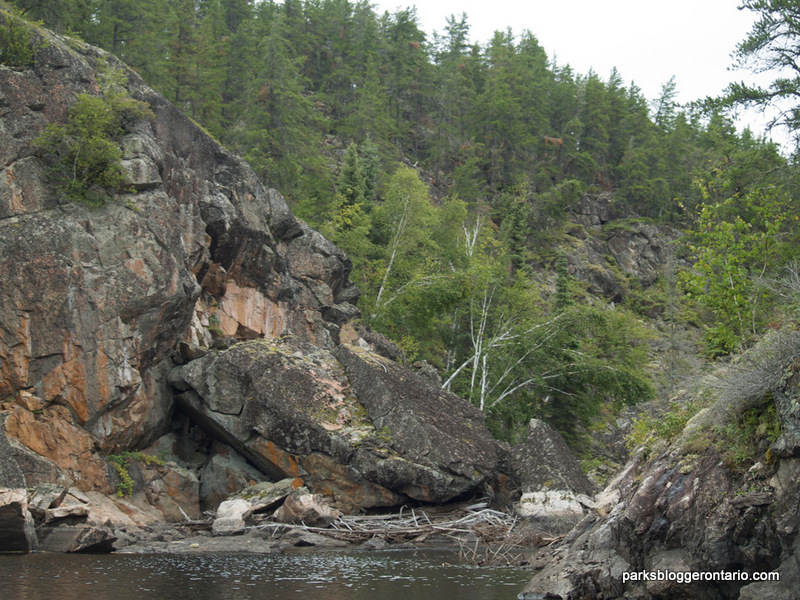
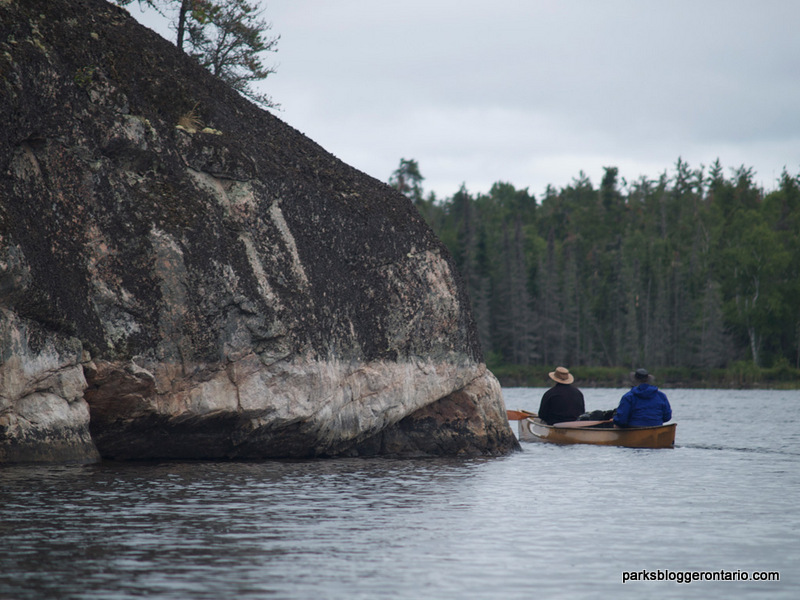
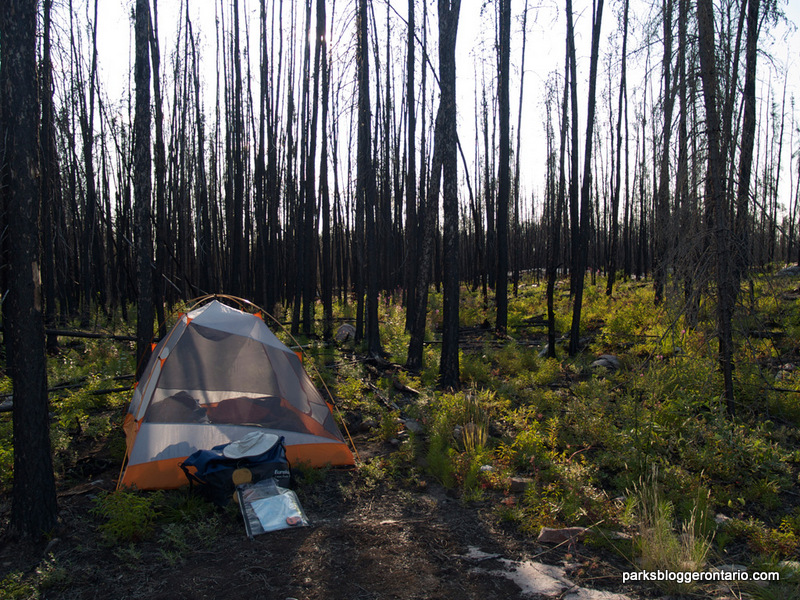
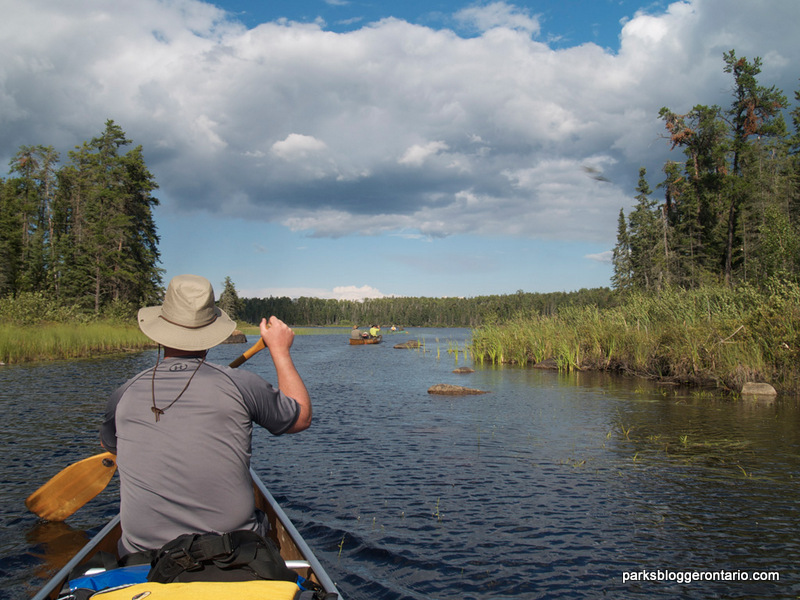
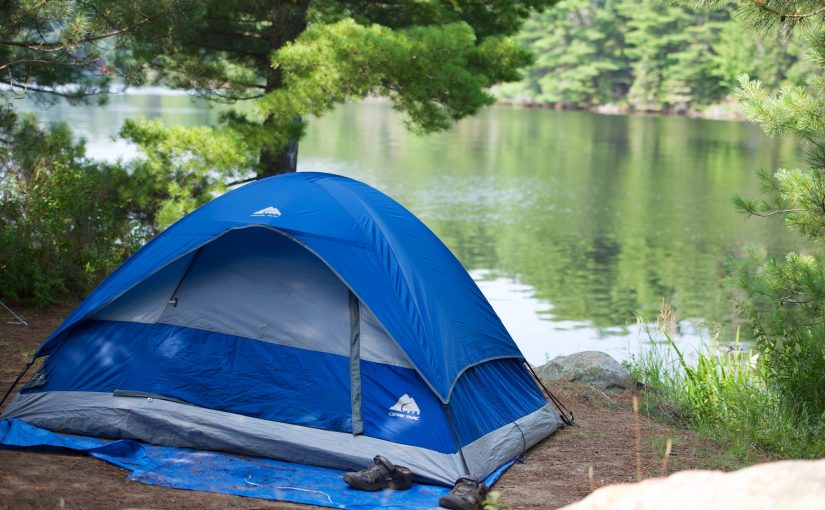

[…] Canoe camping at Woodland Caribou Provincial Park […]